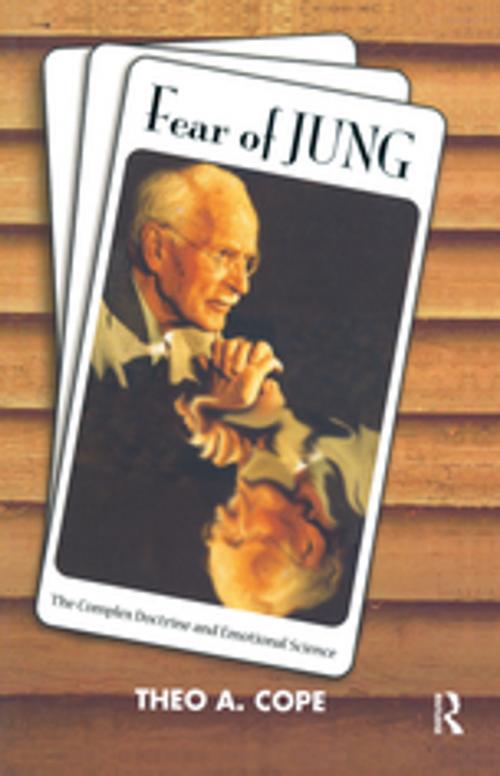Fear of Jung
The Complex Doctrine and Emotional Science
Nonfiction, Health & Well Being, Psychology, Mental Health| Author: | Theo A. Cope | ISBN: | 9780429913631 |
| Publisher: | Taylor and Francis | Publication: | April 17, 2018 |
| Imprint: | Routledge | Language: | English |
| Author: | Theo A. Cope |
| ISBN: | 9780429913631 |
| Publisher: | Taylor and Francis |
| Publication: | April 17, 2018 |
| Imprint: | Routledge |
| Language: | English |
The current neuroscientific research in the field of emotion studies highlights a paradigm of scientific research that must be categorized as functional science. As functional science, the neuroscientific theory of the "neuron doctrine" combined with a Jungian theory of the "complex doctrine" hold significant potential for a natural human science and a psychological study of affectivity. Though researchers utilize psychological constructs similar to those proposed by Carl Jung, there appears to be a "fear of Jung," that is, a professional fear of invoking Jung's name or his psychological research. One familiar with Jung's works notice similar terminology, ideas, and even conclusions. The marginalization and neglect of Jung's psychological insights from a serious "empirical-scientific" approach to psychology is due to many factors. Jung did not reduce psychological experience to the body or brain; a reductive science does not consider seriously the reality of the psyche. This work is an initial contribution to a psychological and neurological study of personal emotional experience.
The current neuroscientific research in the field of emotion studies highlights a paradigm of scientific research that must be categorized as functional science. As functional science, the neuroscientific theory of the "neuron doctrine" combined with a Jungian theory of the "complex doctrine" hold significant potential for a natural human science and a psychological study of affectivity. Though researchers utilize psychological constructs similar to those proposed by Carl Jung, there appears to be a "fear of Jung," that is, a professional fear of invoking Jung's name or his psychological research. One familiar with Jung's works notice similar terminology, ideas, and even conclusions. The marginalization and neglect of Jung's psychological insights from a serious "empirical-scientific" approach to psychology is due to many factors. Jung did not reduce psychological experience to the body or brain; a reductive science does not consider seriously the reality of the psyche. This work is an initial contribution to a psychological and neurological study of personal emotional experience.















